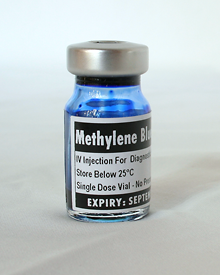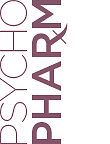When methylene blue was first developed as a dye for jeans and other textiles back in 1876, few could have likely foreseen the long and eclectic journey it would take through science and medicine.
Over the years, methylene blue—a reversible monoamine oxidase inhibitor (MAOI)—has been used as a dye in therapeutic and diagnostic applications, an early antimalarial agent, and an effective antidote to metabolic poisons like cyanide and was the lead compound for the development of the first approved antipsychotic, chlorpromazine.
More recently, there has been some evidence to suggest that taking the chemical may even help to improve memory.
In a
study published June 28 in
Radiology, Francisco Gonzalez-Lima, Ph.D., a professor of psychology, pharmacology, and toxicology at the University of Texas, and colleagues described how healthy people given a single oral dose of methylene blue performed better on a short-term memory task compared with those who received placebo.
While the study was small and the effects were modest (methylene blue was associated with a 7 percent increase in correct responses during memory retrieval on average), imaging data revealed that those who received methylene blue also displayed heightened activity in brain regions associated with attention and working memory.
Prior work by Gonzalez-Lima also suggested that patients with claustrophobia experienced long-term memory benefits after taking methylene blue.
This work, which was
published in the
American Journal of Psychiatry in 2014, tested two types of memory retention, fear extinction and contextual memory. The participants were given either methylene blue or placebo following exposure therapy—being placed in a small dark chamber for a couple of minutes at a time to address their fear. Within each dark chamber, participants were exposed to a glow-in-the-dark number sequence, but they were not given any instructions about these sequences.
One month later, the participants given methylene blue could remember the number sequence better than the placebo group; they also had stronger retention of their fear extinction, though not necessarily beneficial (patients who were given methylene blue and for whom exposure therapy did not work had higher fear levels).
Gonzalez-Lima said that the results of these two studies, along with the results of several animal studies, suggest that the drug could eventually be a therapy for people at risk for dementia or other cognitive deficits.
“The research in animals suggests that methylene blue exerts a protective effect by repairing faulty cellular respiration (the process by which cells create energy) and reducing the production of harmful free radicals that can kill neurons,” Gonzalez-Lima explained. “Therefore, in later-stage Alzheimer’s when the brain is already compromised, it may not make a difference, but I think it could delay or reduce symptoms in people at the early stages of disease.”
Martin Alda, M.D., professor and Killam Chair in Mood Disorders at Dalhouise University in Halifax, Nova Scotia, said he believes methylene blue may also benefit patients with bipolar disorder. “There is increasing evidence that bipolar may be a progressive condition; people who have had this illness for a long duration have shown signs of deterioration like cortical thinning and less gray matter,” he explained to Psychiatric News.
Alda recently published a
study comparing the effectiveness of lamotrigine along with daily supplements of either 195 mg or 15 mg methylene blue in patients with bipolar disorder. (One of the side effects of this chemical is blue urine, so they could not use a true placebo.)
The six-month study employed a crossover design so patients would take each dose for three months. His team found that the participants had reduced depression and anxiety when they were taking high-dose methylene blue compared with when they were on the lower dose. In contrast, overall cognition scores were no different between the two groups. Alda noted that the study did not include patients with significant cognitive deficits, so there may not have been much room for improvement.
“It’s also possible that even the low dose of methylene blue was enough to improve cognition,” he added.
Alda said that several patients chose to stay on methylene blue after the study concluded, and he has prescribed it off label to several other patients. While the drug is generally well tolerated, at high doses it can interact with selective serotonin reuptake inhibitors and potentially lead to a toxic condition known as serotonin syndrome. (A 2011 FDA
warning stated that intravenous doses of greater than 1 mg/kg could be harmful.)
“The doses we use are below the toxic range, and we haven’t encountered any problems,” Alda said. Still, because of the limited data on the use of methylene blue for psychiatric conditions, he recommends that all physicians exercise caution when considering prescribing the medication for off-label use.
Gonzalez-Lima’s study was supported by the National Center for Advancing Translational Sciences. Alda’s study was supported by the Nova Scotia Health Authority and the Stanley Medical Research Institute. ■

